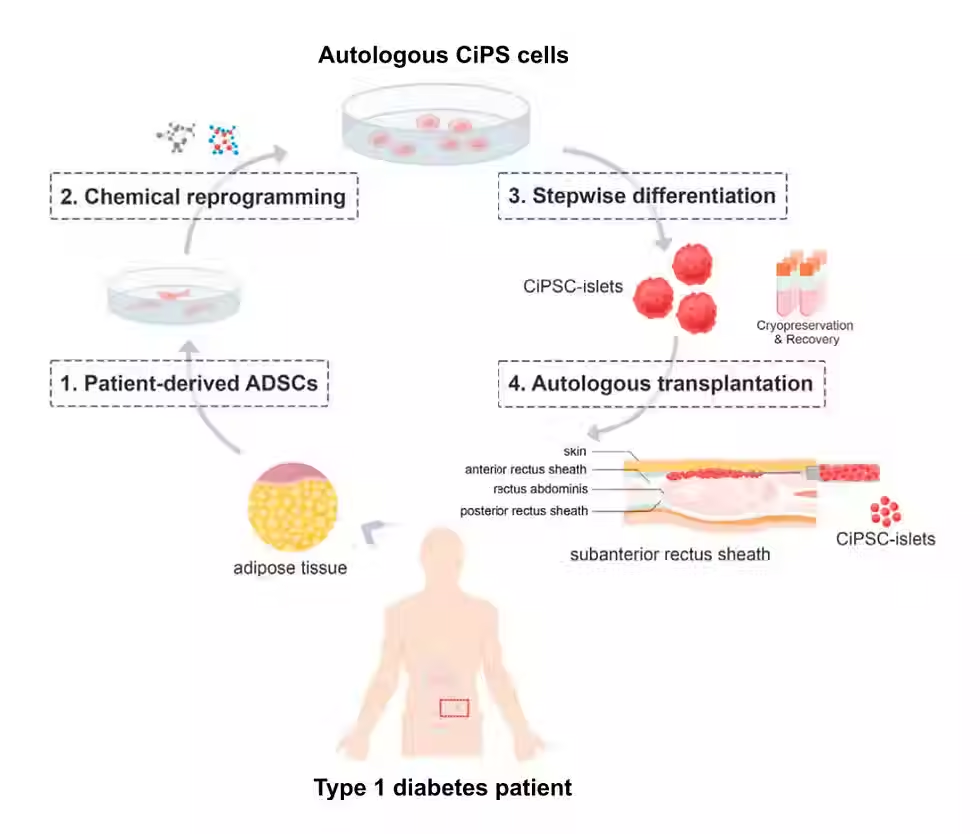Breaking Ground in Type 1 Diabetes: The Promise of Vertex VX-880
- a s
- Feb 15, 2024
- 3 min read

Type 1 diabetes (T1D) has long been a challenging condition, defined by the body's inability to produce insulin due to an autoimmune attack on insulin-producing beta cells in the pancreas. For millions worldwide, managing T1D involves constant monitoring of blood glucose levels, insulin injections, and a vigilant lifestyle. But what if there was a way to restore the body’s ability to produce insulin naturally?
Enter Vertex VX-880, a groundbreaking investigational therapy developed by Vertex Pharmaceuticals. This innovative approach could represent a paradigm shift in how T1D is treated—targeting the root cause rather than just managing the symptoms.
What Is Vertex VX-880?
VX-880 is a cell therapy designed to replace the insulin-producing beta cells destroyed in individuals with T1D. These beta cells are derived from stem cells, a remarkable technology that allows scientists to create functional human cells in the lab. Once implanted into a patient, the beta cells have the potential to sense blood sugar levels and produce insulin as needed—just as a healthy pancreas would.
This therapy is not just a temporary fix; it aims to restore a natural balance, potentially reducing or even eliminating the need for insulin injections.
How Does VX-880 Work?
The VX-880 treatment involves two critical components:
Beta Cell Transplantation:
Stem cells are engineered into fully functional beta cells, which are then transplanted into the patient. These cells can monitor glucose levels and release insulin in response.
Immune Protection:
Since the autoimmune response in T1D can attack newly introduced beta cells, patients undergoing VX-880 therapy receive immunosuppressive medication. This is to protect the transplanted cells and ensure their functionality over time.
Clinical Progress: What Do We Know So Far?
VX-880 has shown promising results in early clinical trials. In these studies, patients receiving the therapy demonstrated:
Improved glucose control.
Reduced dependence on exogenous (external) insulin.
Evidence of insulin production by the transplanted beta cells.
Vertex Pharmaceuticals continues to advance its research, with the goal of proving VX-880’s safety and long-term efficacy in restoring insulin production. While it is still in the investigational stage, the early findings have generated considerable excitement in the medical community.
Why Is VX-880 a Game Changer?
For decades, the primary treatment for T1D has been focused on managing blood sugar levels through insulin therapy, continuous glucose monitors, and lifestyle adjustments. These tools are lifesaving but also demanding and far from a cure.
VX-880 takes a fundamentally different approach by addressing the underlying cause of T1D: the absence of functional beta cells. If successful, it could:
Significantly reduce the burden of daily disease management.
Minimize complications associated with T1D, such as nerve damage, kidney failure, and cardiovascular issues.
Offer a potential long-term solution for millions of individuals with T1D.
Challenges and the Road Ahead
While VX-880 offers immense promise, there are challenges to address, including:
Immune Rejection:
Long-term use of immunosuppressants is required to prevent the immune system from attacking the transplanted cells, posing potential risks and side effects.
Accessibility and Cost:
Advanced therapies like VX-880 can be expensive to develop and distribute, raising questions about affordability and accessibility.
Durability of Beta Cells:
Ongoing studies will determine how long the transplanted cells remain functional and whether additional treatments may be required over time.
A Glimpse Into the Future
VX-880 is a beacon of hope for those living with T1D, representing a new frontier in regenerative medicine. While challenges remain, the possibility of a therapy that allows the body to produce its own insulin could transform lives.
Vertex Pharmaceuticals’ efforts underscore the power of scientific innovation in tackling even the most complex diseases. As research progresses, VX-880 could one day be remembered as a milestone in the journey toward curing type 1 diabetes.
Let’s keep an eye on this exciting development—because the future of diabetes care may be closer than we think.



Comments